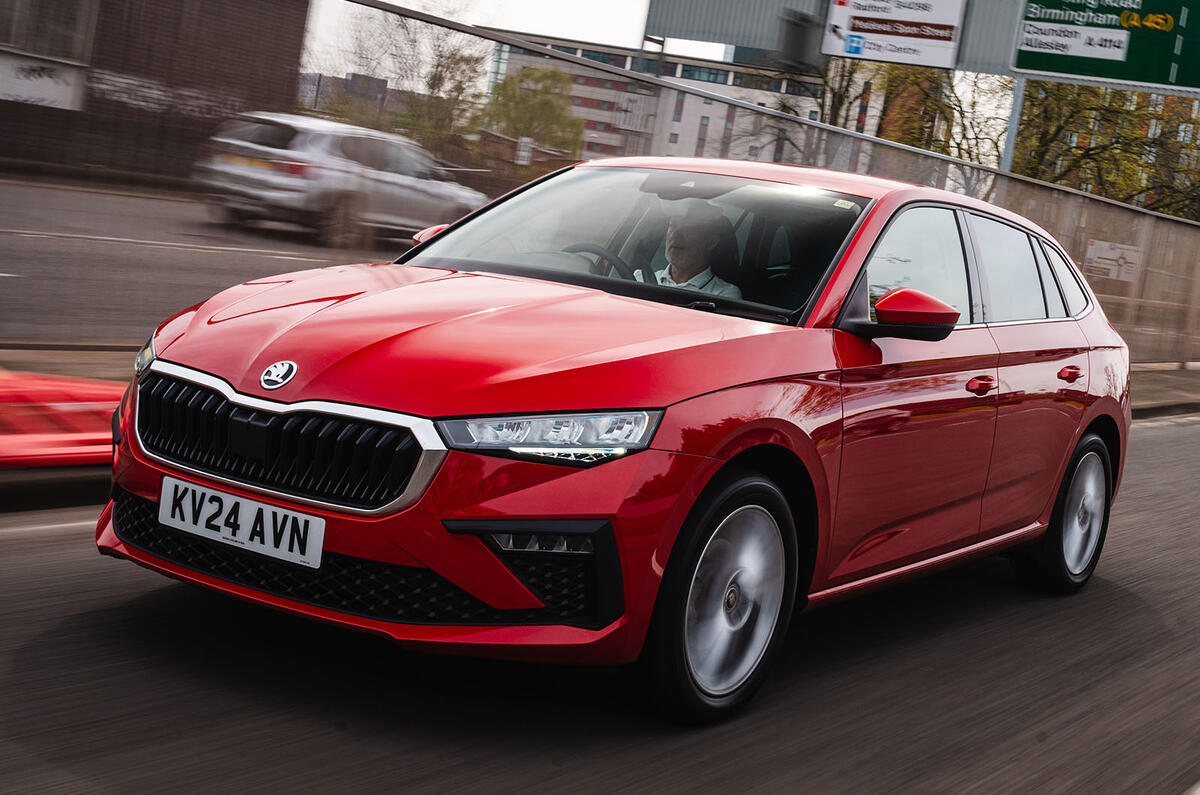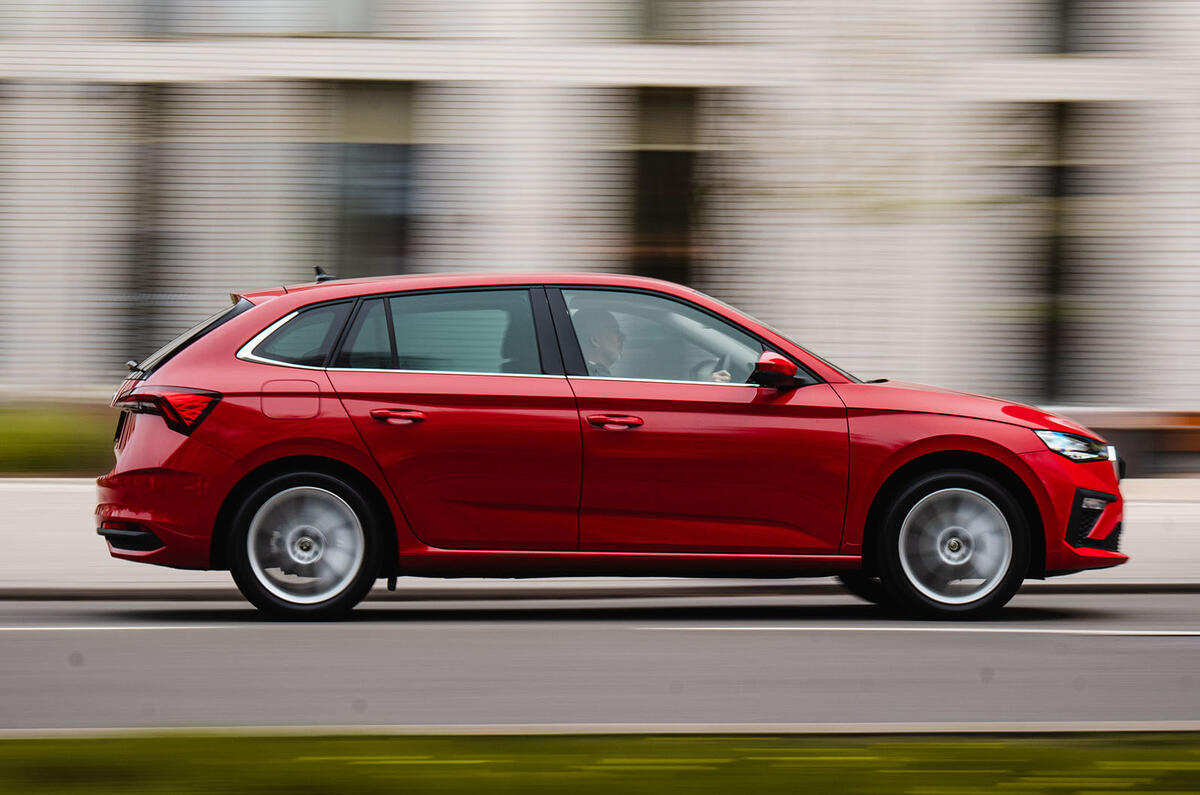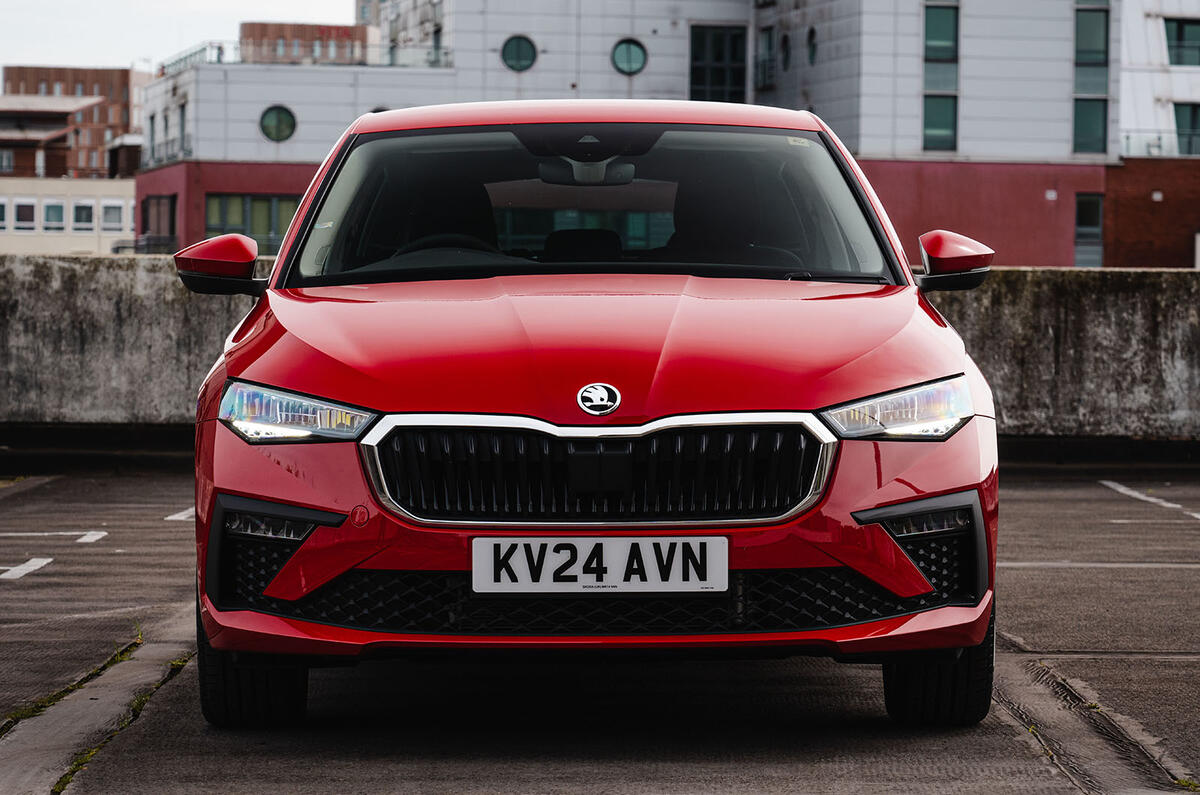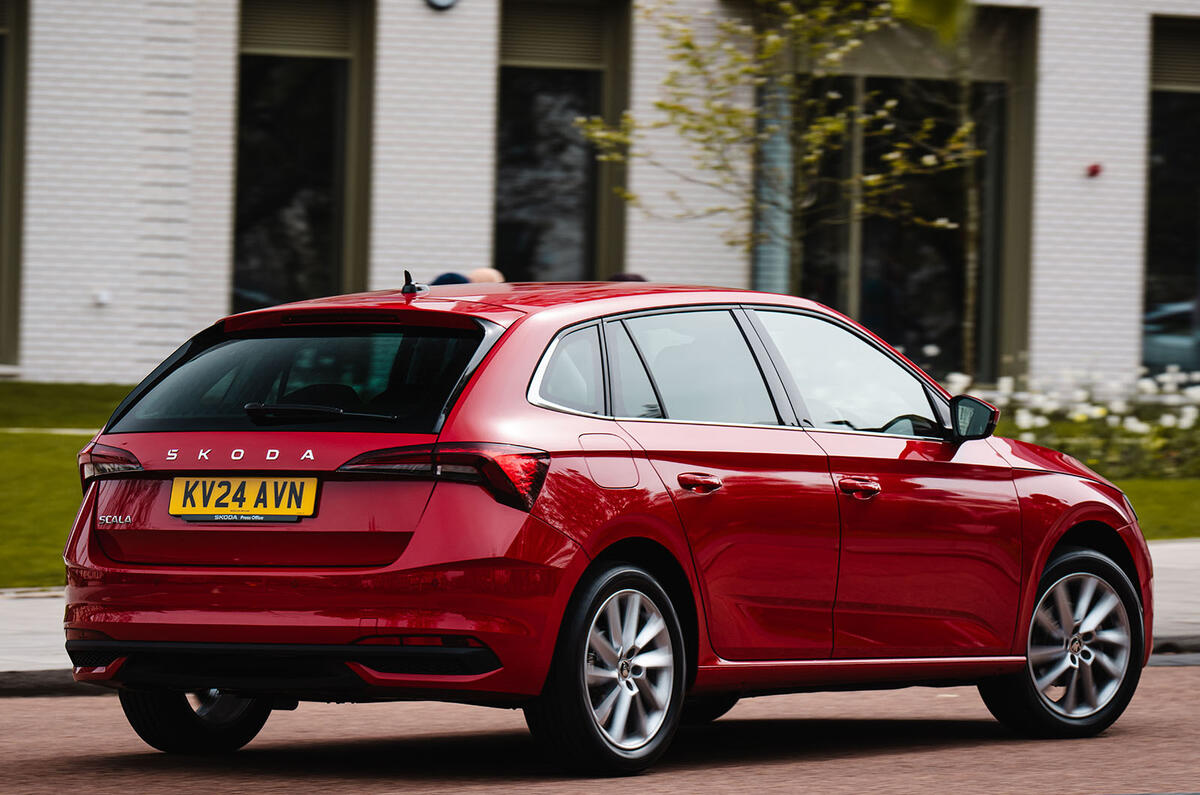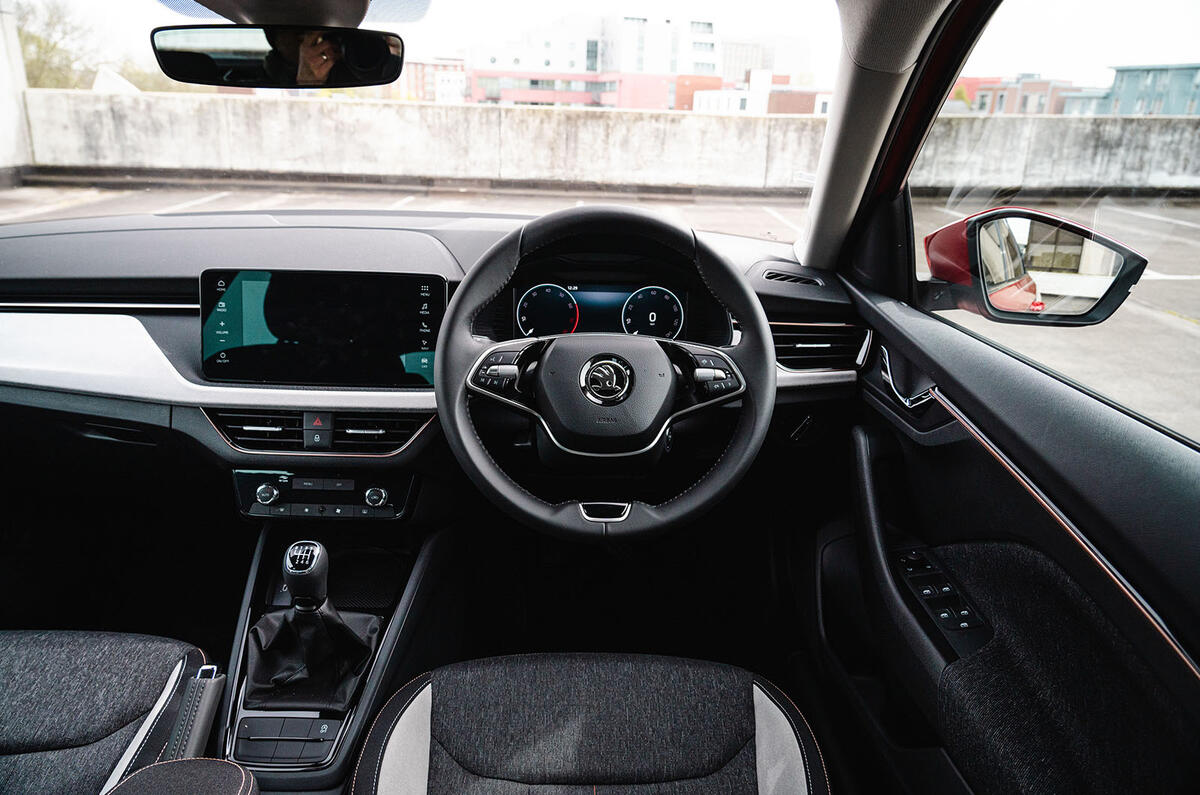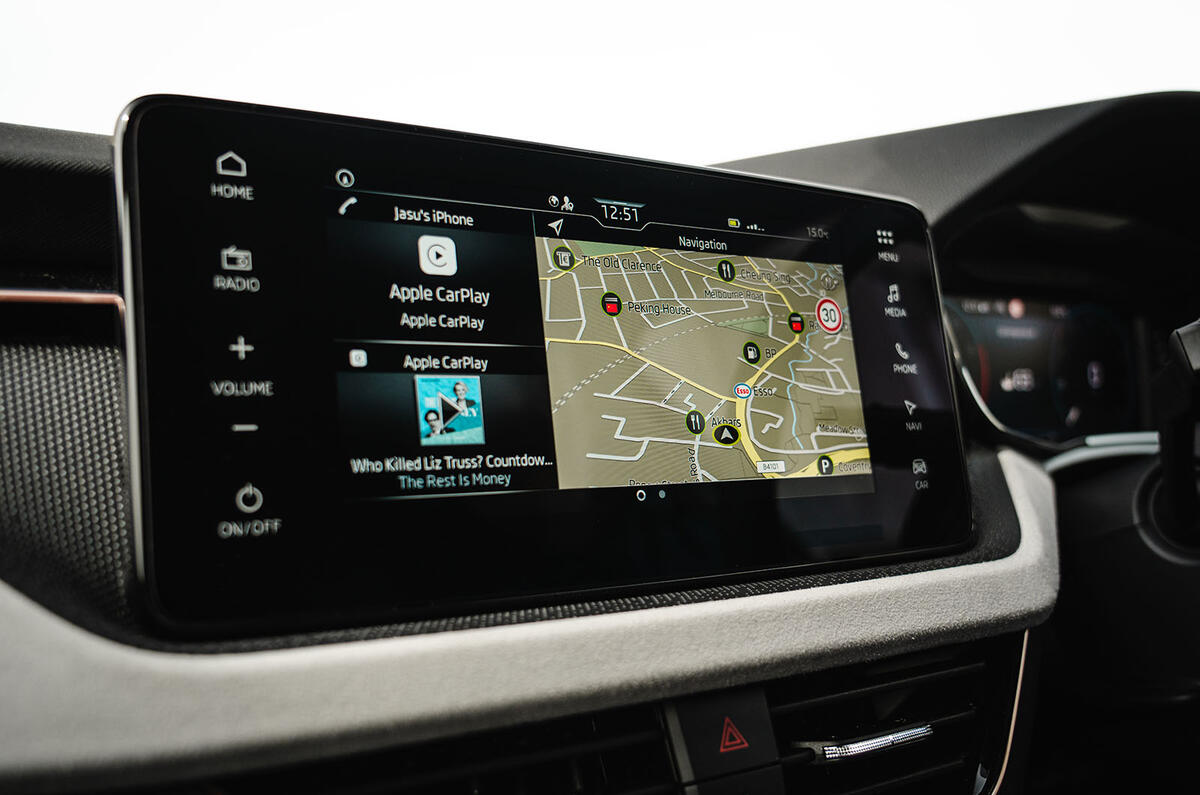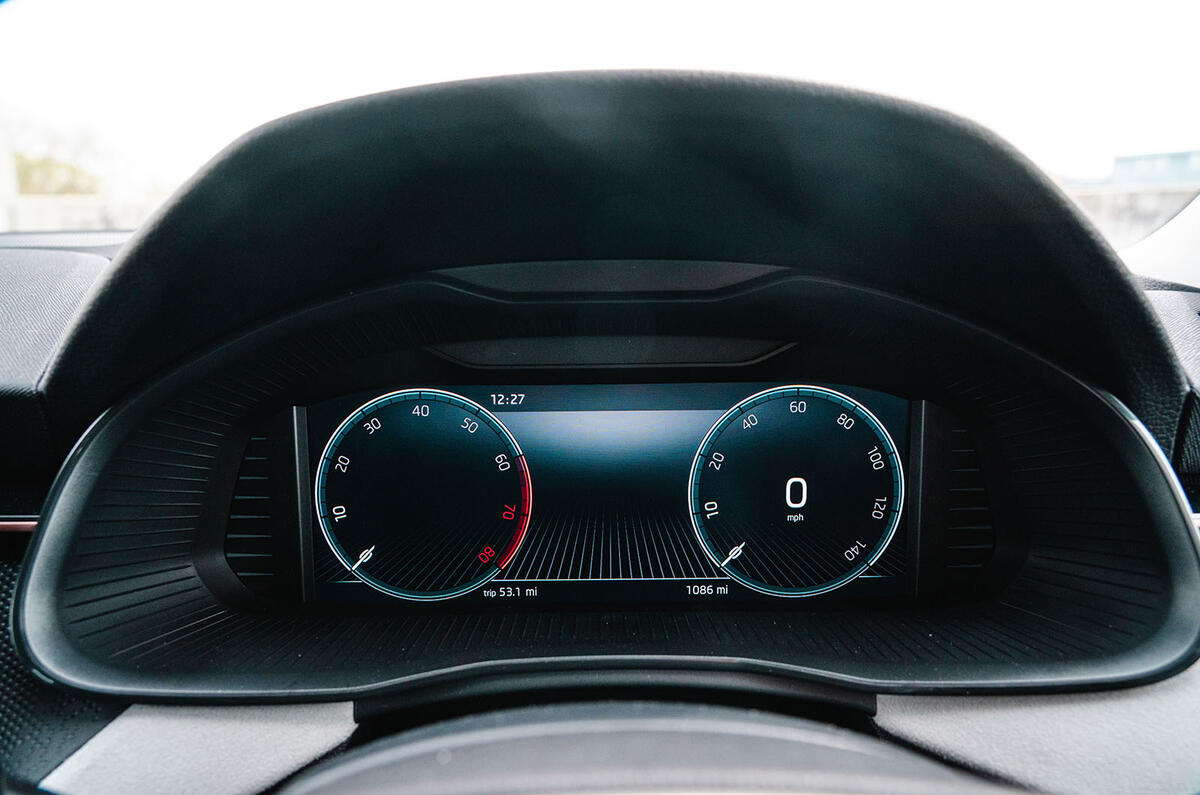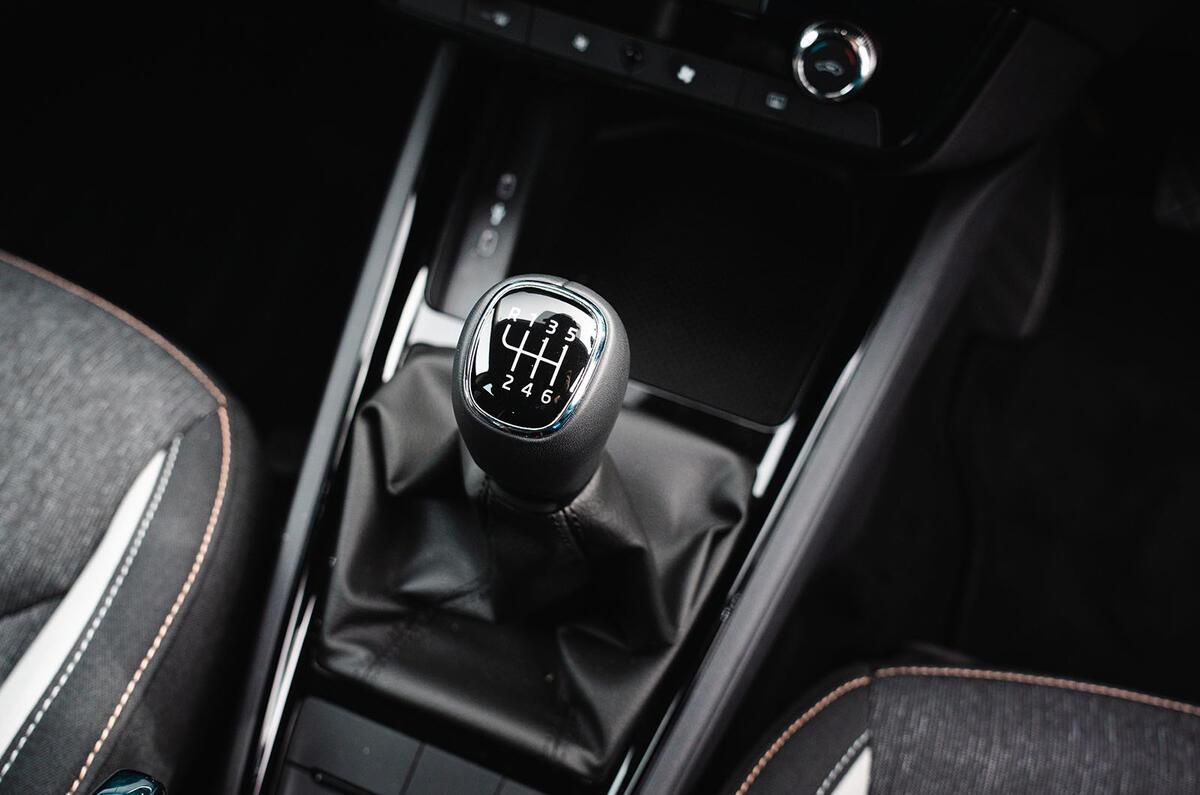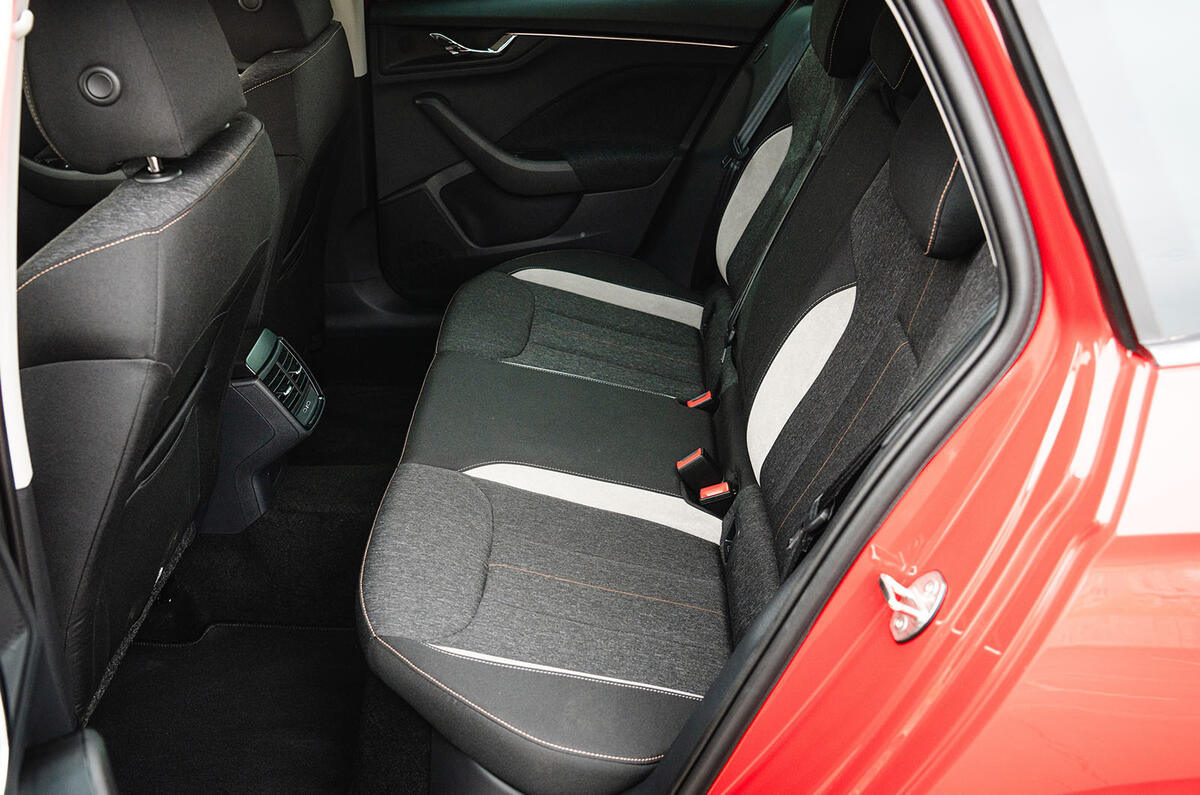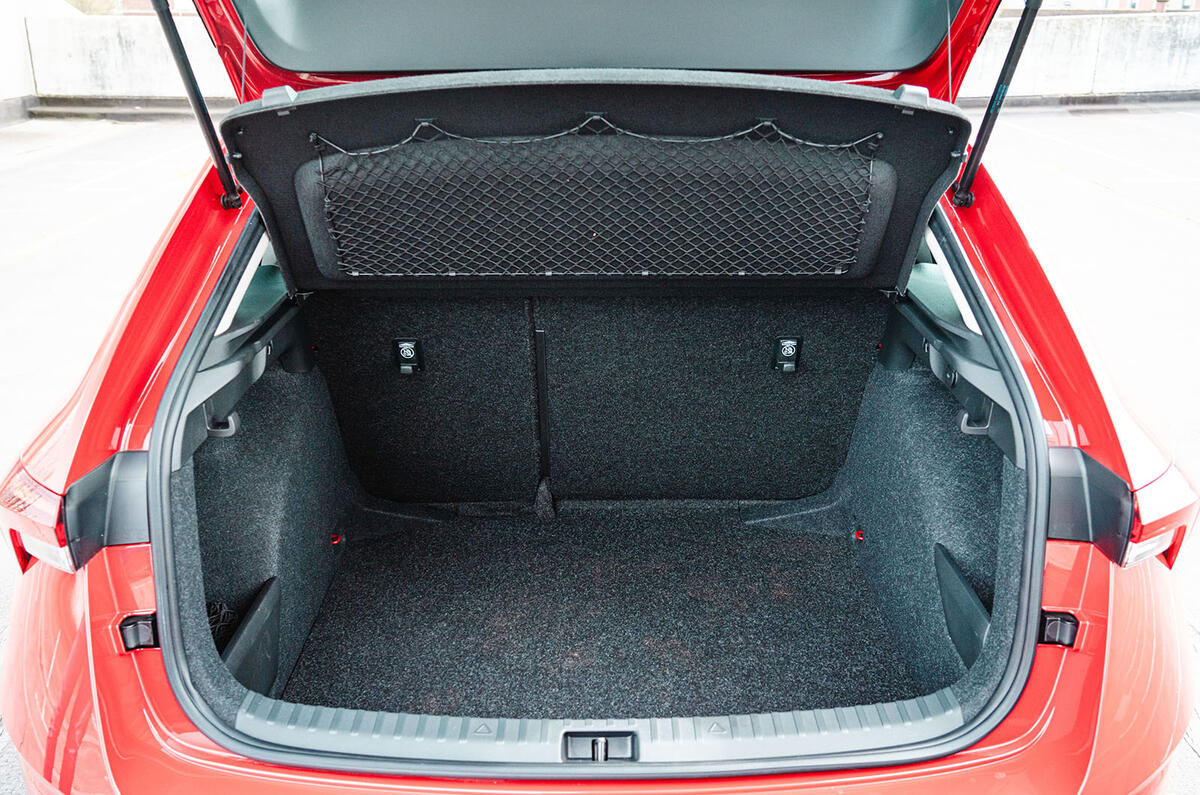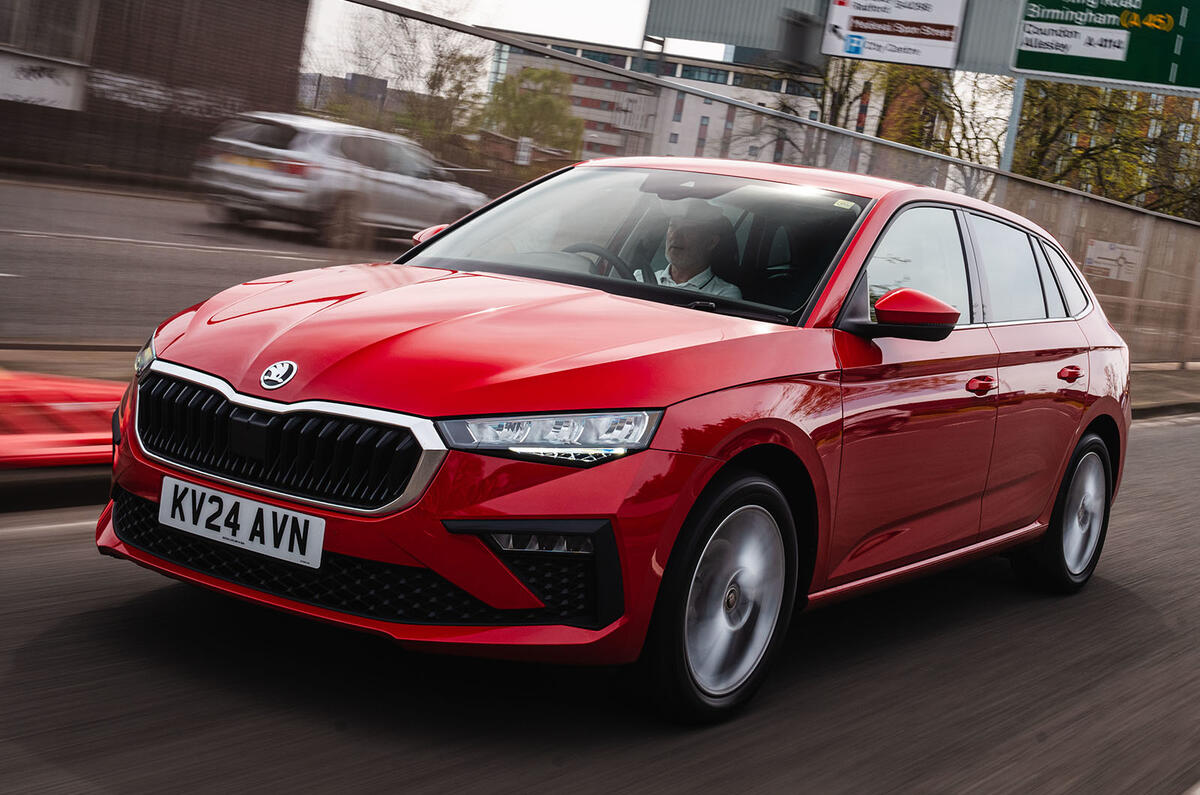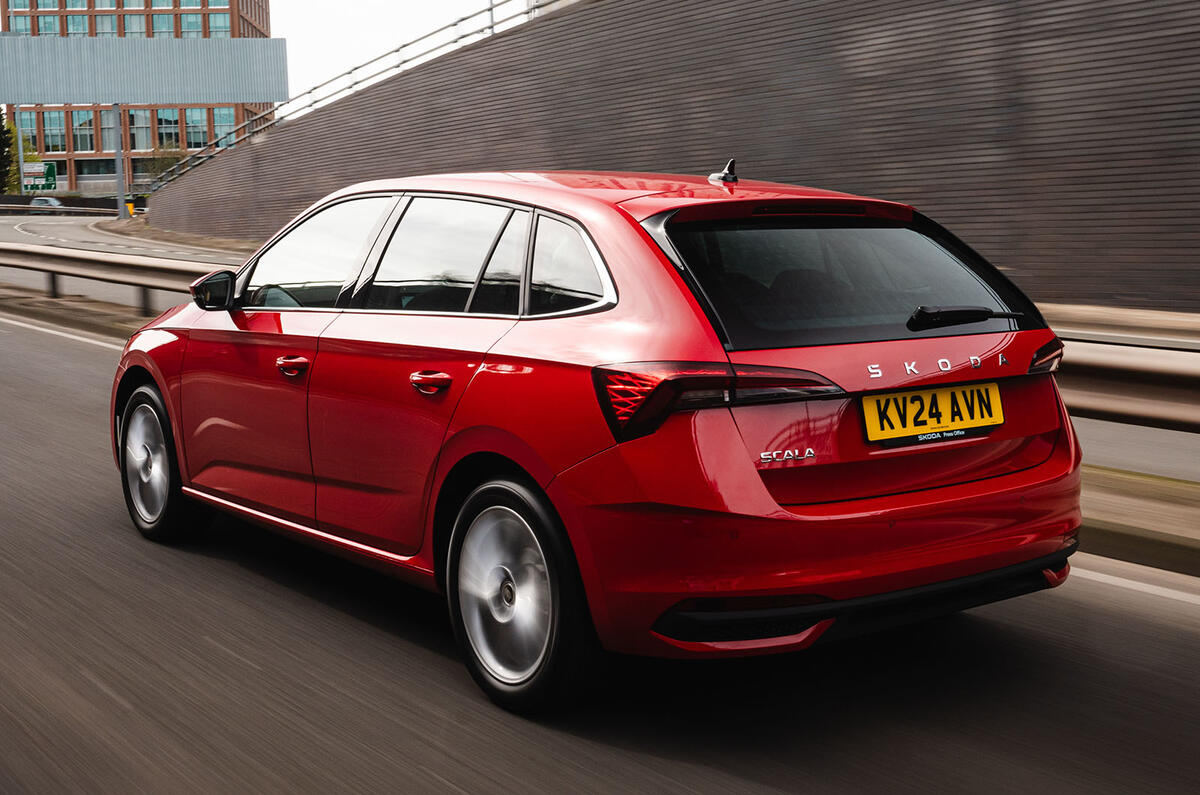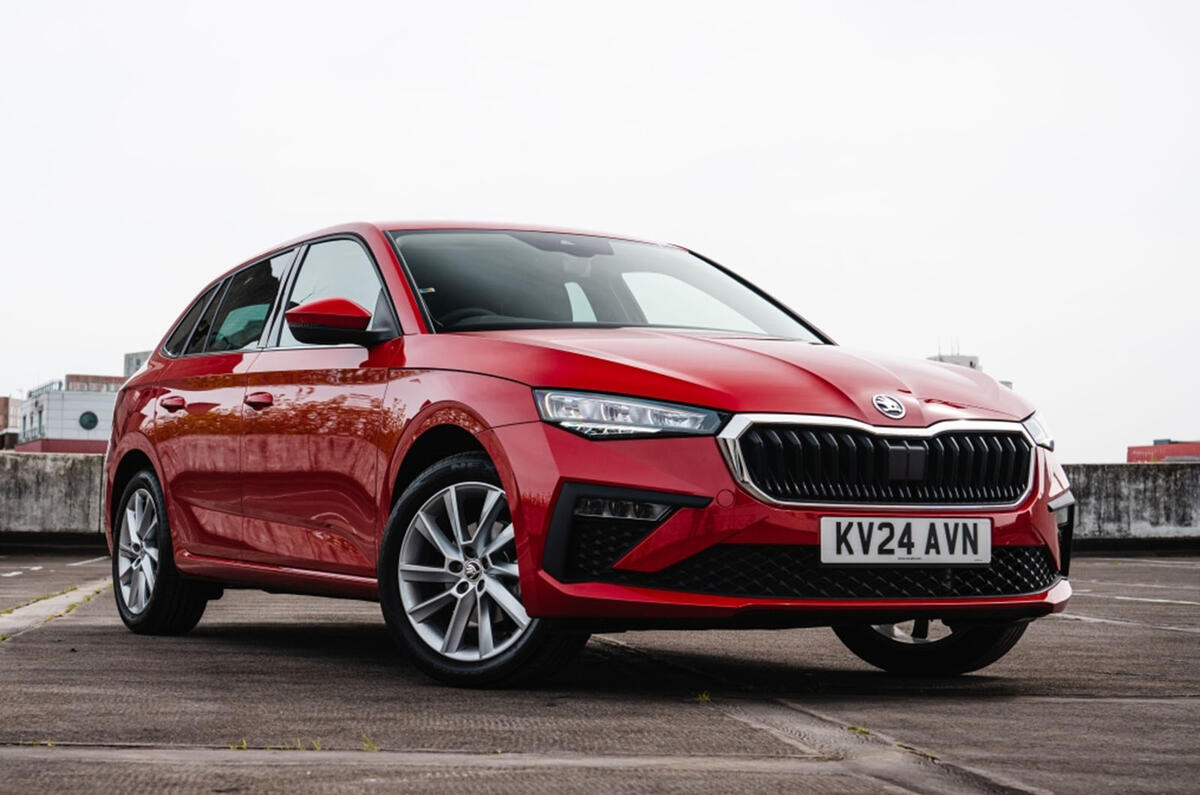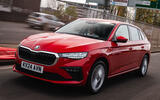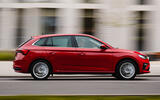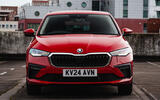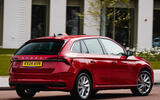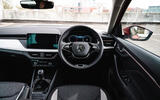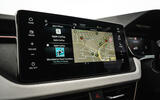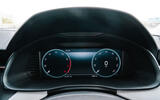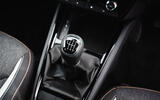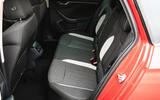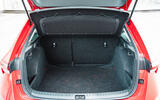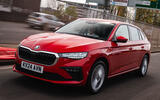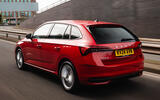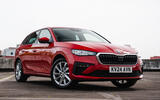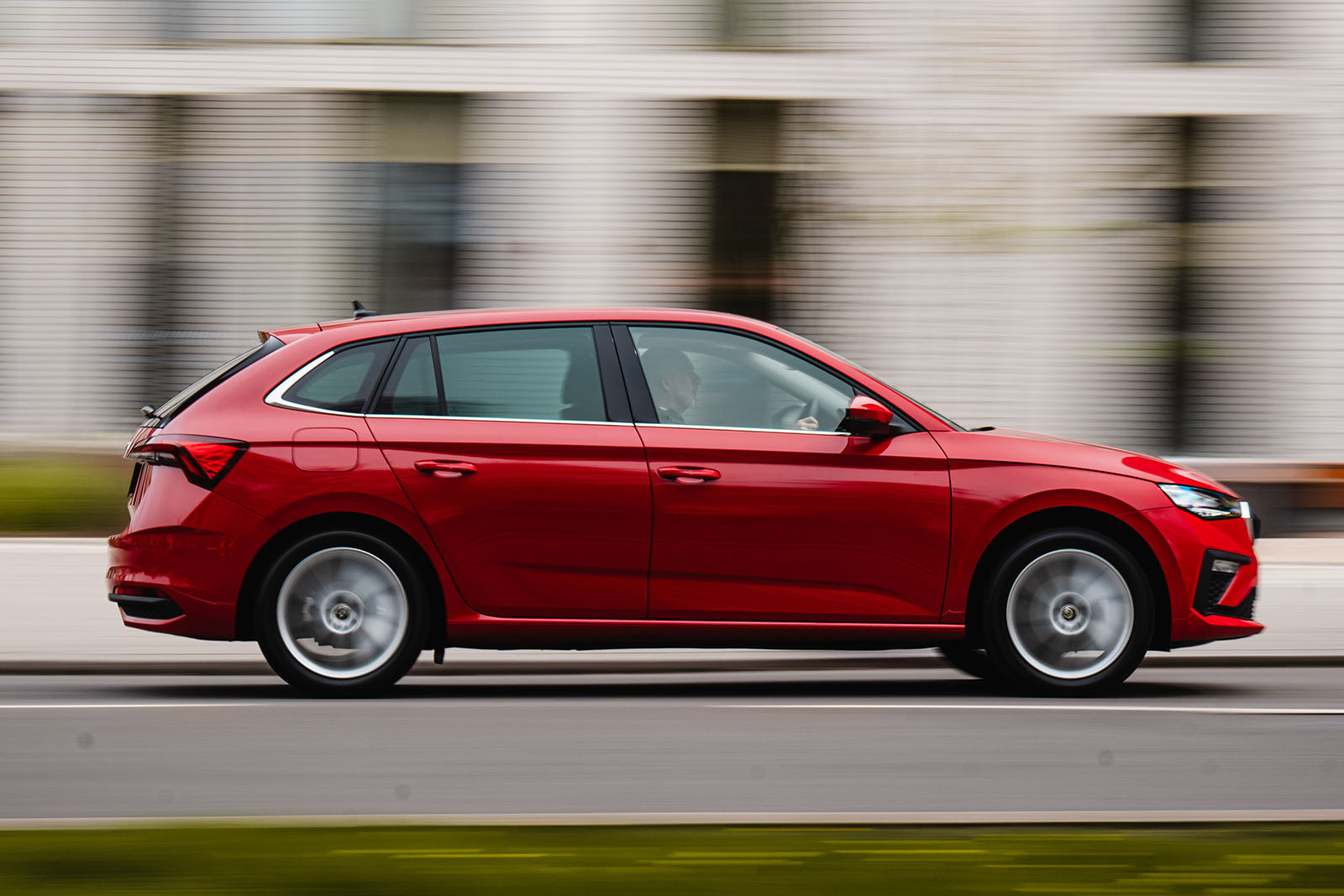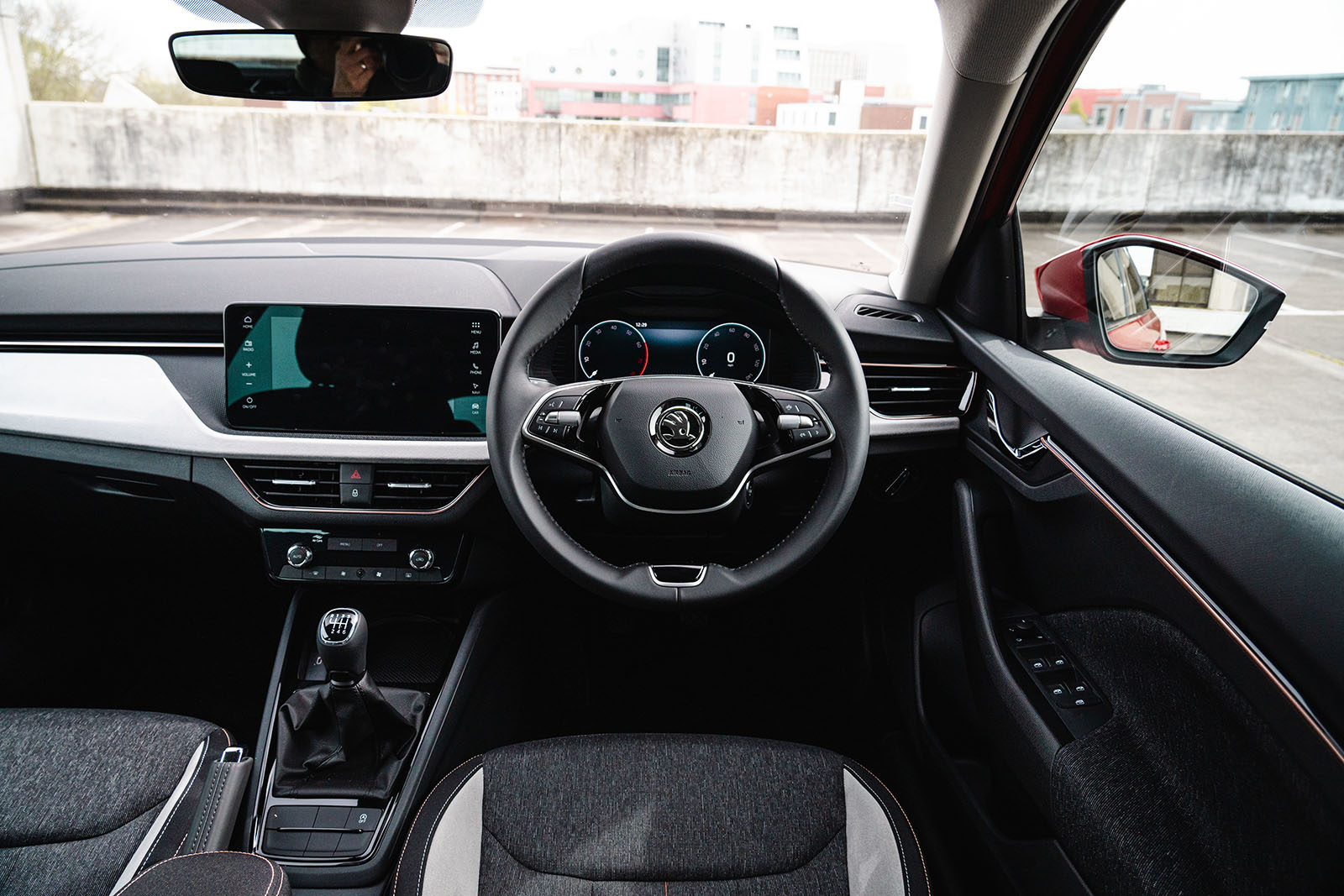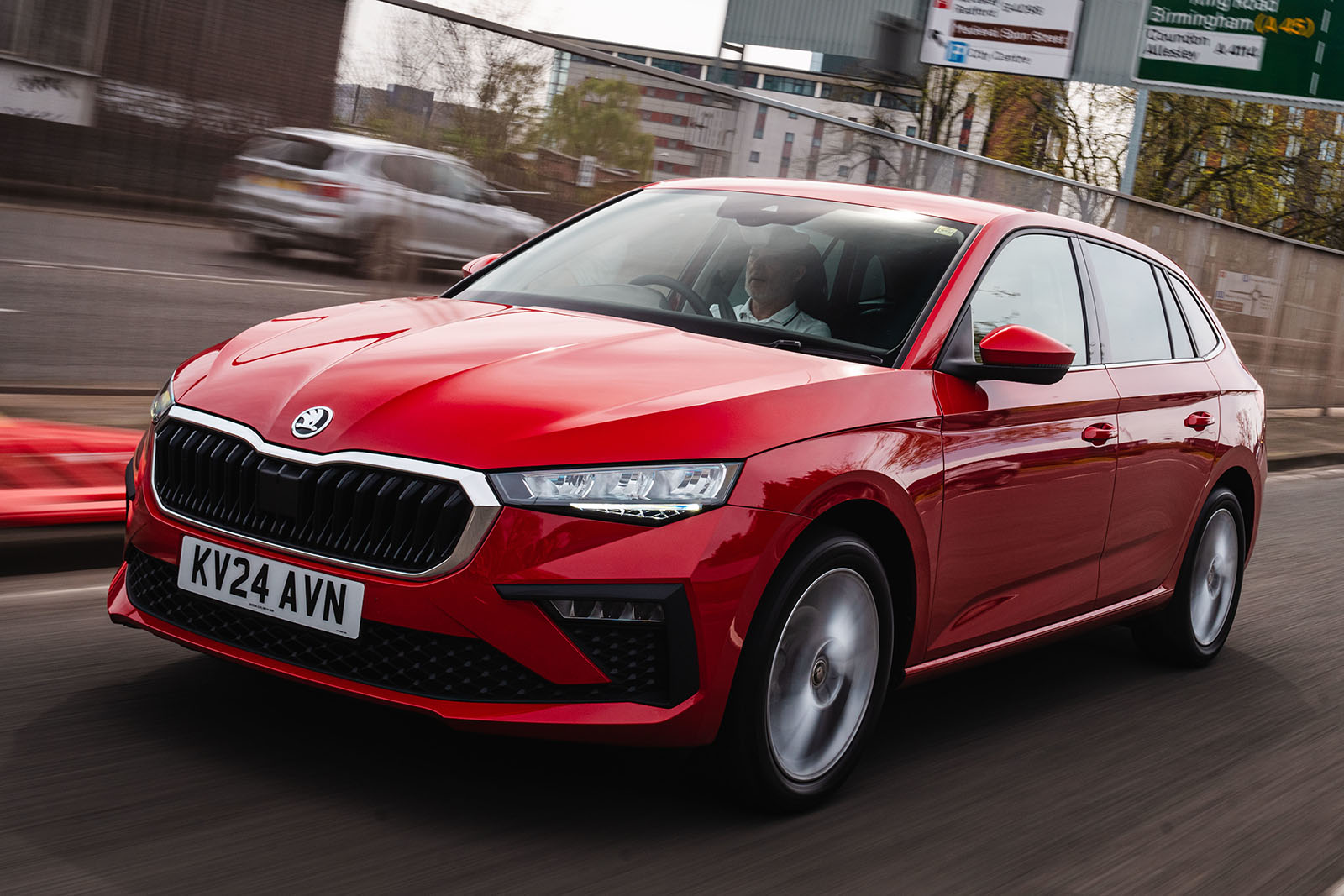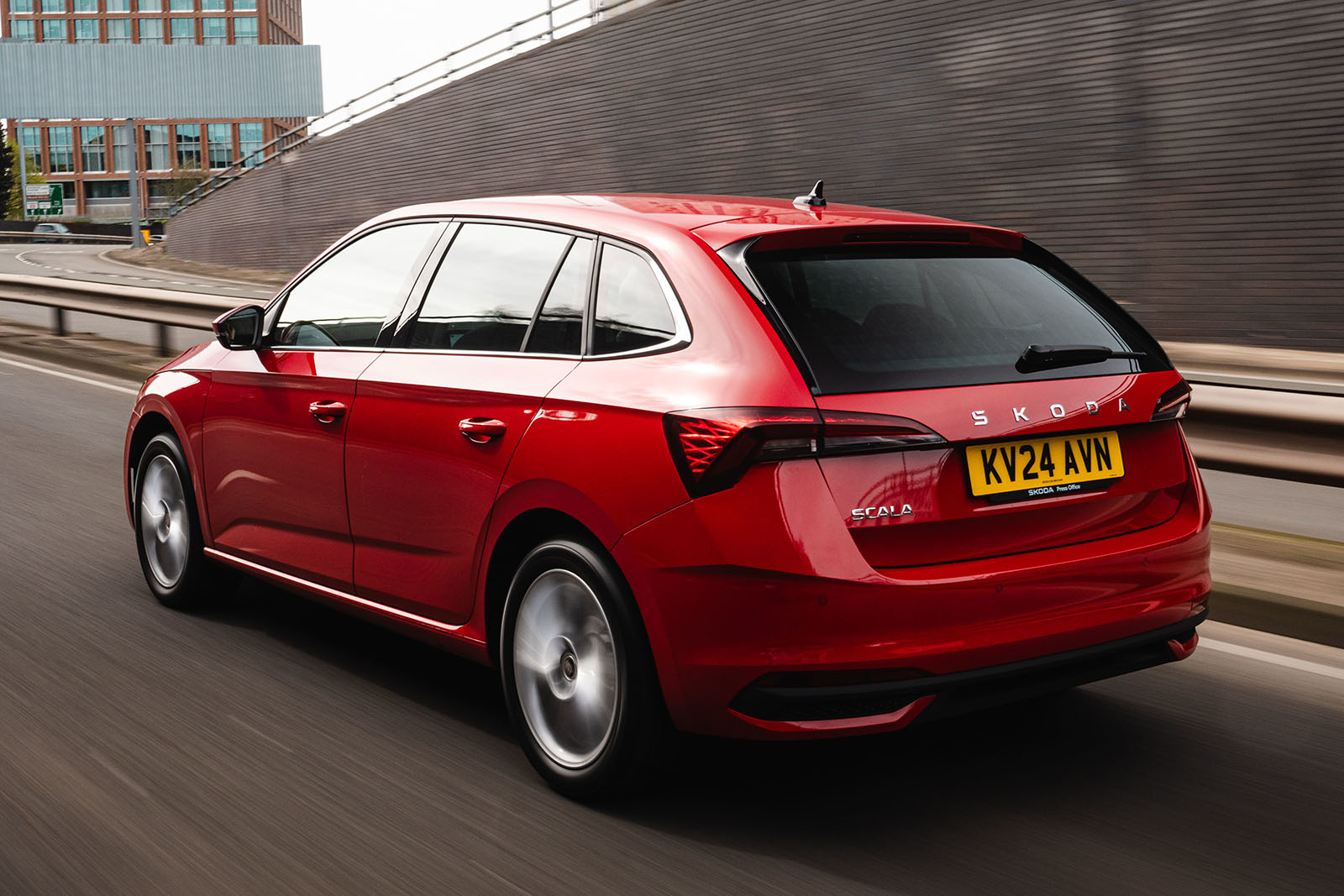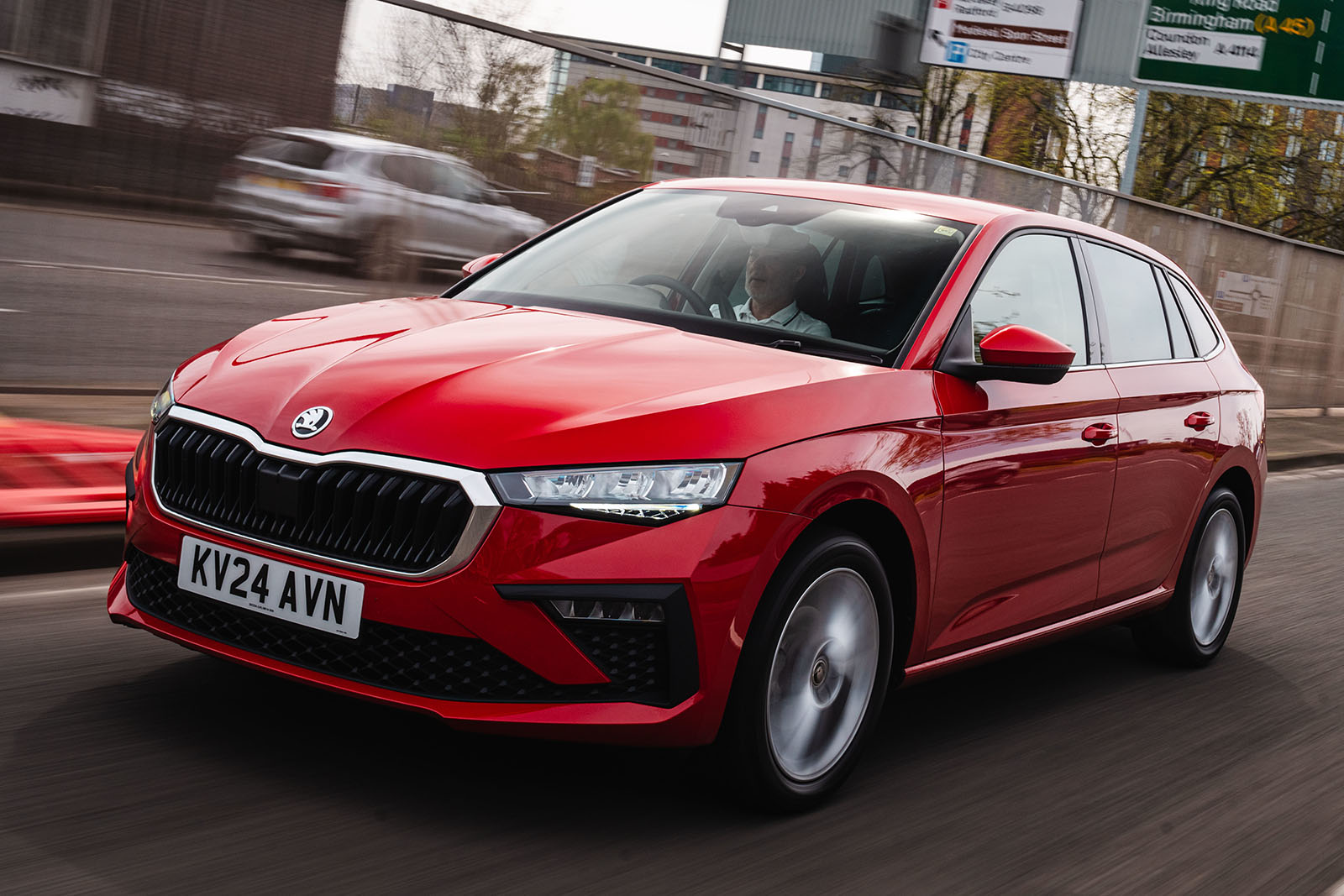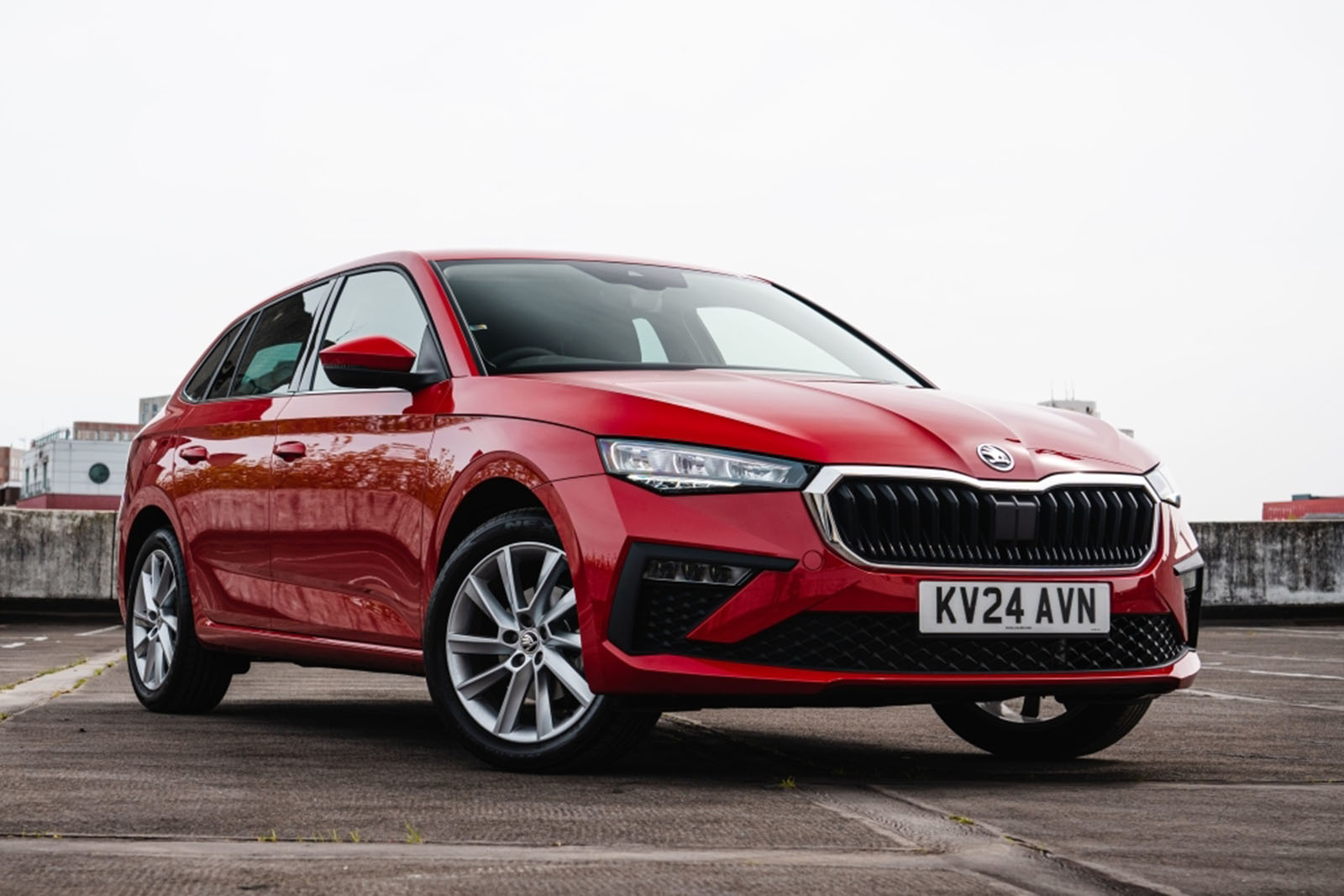Skoda's three-cylinder 1.0-litre TSI 'evo2' engine is the big mechanical ingredient of its midlife facelift, though it doesn't feel much different from the powertrains gone before it. It's got revised cam timing and turbo calibration, but still revs fairly freely, is reasonably refined, and produces a useful but not particularly sporty-feeling amount of accessible torque.
Skoda's six-speed gearbox in this car is key to making the most of that engine, however. We wouldn't be keen to drop down to the entry-level 94bhp petrol engine, with its five-speed transmission, for fear of the longer-feeling gearing making the performance feel a bit ponderous.
You might expect few Scala buyers to stump up for the car’s range-topping petrol-auto powertrain combination, but those who do won’t get less value for money. It is the 1.5 TSI’s role within the wider Scala engine line-up to be the refined, slick, unobtrusive and well-mannered option in the range. Less so in this car, perhaps, will it be required to set a particularly sporting mark for outright acceleration – although an authoritative turn of speed clearly won’t hurt.
The range-topping Scala fulfils that remit pretty well, while even punching a little above its weight in terms of its fairly energetic pace. In dry conditions the car had all the front-driven traction and smoothly metered automatic clutch actuation it needed to put all of its torque straight onto the asphalt from rest. It hit 60mph in just under eight seconds – not at all shabby for a practical family car of such humble ambitions.
The DSG gearbox delivers well-timed automatic shifts even at full power, but it can be a little bit slow and clunky when kicking down after big, sudden throttle applications. Likewise it seems a bit slow when you’re rowing up and down the ratios yourself in manual mode (for which there are no steering wheel paddles; instead, Skoda obliges you to use the gear lever knocked sideways into its sequential-style setting).
At a more typical everyday mooching pace there’s seldom any roughness or incivility about the workings of the transmission. It tends to take quite a high gear in town if you leave it in ‘D’, letting the engine’s turbocharged torque haul the car along easily enough – or it can be made a little bit more willing to hold a shorter ratio if you drive in ‘S’ mode, without ever risking any kind of ratio-shuffling hyperactivity. In both modes, drivability is very good.
This engine combined with the six-speed manual gearbox makes for a pleasant and largely easy-going powertrain which, particularly in its upper reaches, provides swift, unruffled progress. One gripe we have with it, however, relates to turbo lag. Below 2500rpm the engine has very little in the way of meaningful shove to the extent where you find yourself changing down to stay within its optimal revband, which isn't the most fuel-efficient solution.
Mechanical refinement is certainly competitive, however. Inside the car at 50mph our noise meter registered 64dB for the 1.5-litre model, which is only 2dB more than we found in the Ford Focus. With its engine under load the Scala presents a bit more resonance and vibration than we’ve found when testing this powertrain in cars based on the Volkswagen Group's full-sized MQB platform, but the difference is small and will likely not bother the majority of drivers.



